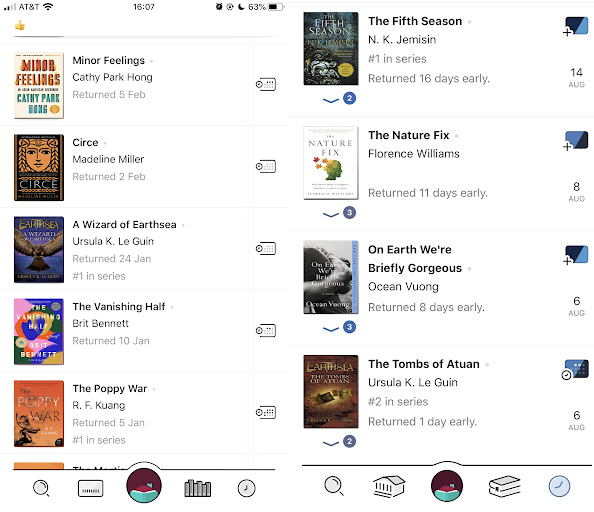Learning Outside an Academic Setting
By Lucia, a Peer Tutor
As a double major in Biostatistics and Linguistics who is minoring in math, I am constantly thinking about the best ways to learn. Sometimes this means looking at the overlapping concepts between these three subjects or figuring out strategies that work for a certain class but not for another. And unfortunately, these thoughts are often made in the context of school.
But even though I believe that education has its merits, it feels wrong to restrict my view of “learning” to a structured, academic setting. Graduation is right around the corner, so it won’t be long before I’m not in this environment anymore, but I will still want to keep this mindset as I grow in life. So as I’m tackling my senior year of undergrad, I want to continually remind myself of the ways I can write and learn—outside of the classroom.
Having Fun Isn’t Hard When You’ve Got a Library Card
One way I learn is simply by reading for fun. I used to be an avid reader as a kid, but stopped for several years before picking it back up last year when I rediscovered how enjoyable it was for me. Now when I read, I try not to limit myself to a single genre, even if I prefer to read narratives or character-driven novels. There is definitely something out there for every person to enjoy and there are plenty of accessible options like audiobooks, screen readers, translations, and other aids for those who might need them. Since I have the freedom to choose, I find that I pay closer attention to the context and purpose behind a written work, and I can comprehend what I’m reading much easier than a dense paragraph from a (not-as-interesting) textbook.
One author I really admire is Ursula K. Le Guin, who wrote the Earthsea cycle series (among many other books). I remember being assigned the first book of the series back in high school and not appreciating it at the time, since I was too focused on getting good grades to enjoy the narrative. Flash forward to 5 years later, when I read The Wizard of Earthsea again on a whim because it was available at my local e-library. I found it much more interesting this time around and finally understood why my high school teacher had assigned it in the first place. Not only was the text rich with new vocabulary, but the lessons that the characters learned could be applied to reality as well.
Now I’m reading the third book in the series, The Farthest Shore, and I love how Le Guin’s style makes fantasy elements seem real and lived in. It reads like a picturesque fairytale full of dragons and wizards, but still explores themes like identity, freedom, power, and “good”/”evil.” There are lessons to be learned from the characters and their responses to situations, but overall it’s also enjoyable in its plot and story. And most of all, it’s genuinely entertaining to read, especially imagining all the scenes and characters without outsider influence.
Le Guin and other authors whose pieces I’ve read have given me insight on how I can adapt the style, syntax, diction, and other elements of my writing depending on the tone, audience, or purpose of a work. In fact, I have already begun to see some changes in the papers I write. Whether it’s by using a new term or by being inspired by another author’s argument, I have improved in my ability to build and strengthen claims and to provide counter arguments for the opposing side.

On the other hand, when I read scientific or academic articles, I find myself approaching the text differently than a novel or book. One piece I enjoyed was “The 60-Year-Old Scientific Screwup That Helped Covid Kill,” published in May 2021. Although the content itself was interesting, I noticed that I paid attention to the evidence being presented and compared it with the claims the author was making to see if it was valid or sound, rather than trying to imagine the setting like in a book. It was eye-opening to see how the narrative of the article played out, as it mirrored a novel with a plot that continued to move forward but was framed to be a scientific report. The data they had was properly cited and researched, yet only served to support the arguments in the article, not overshadow it. This has changed the way I view academic literature and how the information can tell a story even if the genre is thought of as boring or full of jargon.
Getting back into reading has shown me that learning is a lifelong process. I don’t need to be sitting in a classroom or taking notes to actively engage with what I read, whether the literature I am reading is fictional, scientific, autobiographical, or more. Just getting to spend time doing something I love makes the time valuable to me, and I am grateful for any potential lessons I pick up along the way.
This blog showcases the perspectives of UNC Chapel Hill community members learning and writing online. If you want to talk to a Writing and Learning Center coach about implementing strategies described in the blog, make an appointment with a writing coach, a peer tutor, or an academic coach today. Have an idea for a blog post about how you are learning and writing remotely? Contact us here.

